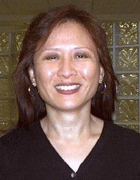
A new study finds significant disparities by race and gender in the enrollment of patients into lung cancer clinical trials. Published in the Jan. 15 issue of Cancer, a peer-reviewed journal of the American Cancer Society, the study indicates that women and African-Americans were least likely to enroll in treatment trials for lung cancer, and identifies a need to improve educational and outreach efforts to make clinical trials available to a wider range of patients.
While clinical trials are important because they test the efficacy of the next generation of potentially life-saving treatments, only five percent of cancer patients participate in clinical trials. Reports have demonstrated that systemic factors in the healthcare system, such as cost, patient education, and physician biases may explain the low accrual rates. But gender and racial inequalities also are apparent, forcing lawmakers in 1993 to direct the healthcare system to encourage women and minority participation. Not only does lack of participation by minorities and women shut them out of the next generation of potentially life-saving treatment, but it also makes it all the more difficult for clinicians to translate treatment benefits and risks found in a clinical trial to these under-represented patient populations.
To evaluate the enrollment rate and the factors predicting enrollment, Wei Du, Ph.D., WSU associate professor of pharmacology, and her colleagues reviewed data from 427 lung cancer patients (175 African-Americans and 252 from other races) who were eligible for clinical trials between 1994 and 1998 at one center, the Karmanos Cancer Institute in Detroit.
Of this group, 21 percent (91 patients) participated in a lung cancer treatment clinical trial. The researchers found that patients who did not participate were more likely to be African American (45 percent versus 25 percent of enrollees), female (43 percent versus 32 percent of enrollees), and over the age of 70 (24 percent versus 10 percent of enrollees). The researchers say their results should be viewed with caution given that the study looked at enrollment at a single medical center, and did not study other factors that may play a role in clinical trial participation. Those include a lack of trust in the medical establishment, lack of knowledge about clinical trials, and the effect of religious belief or spirituality on the willingness to participate.
Still, they conclude: "New recruitment strategies targeting specific patient subgroups might be helpful in ensuring equal representation of women and minority groups in cancer clinical trials."